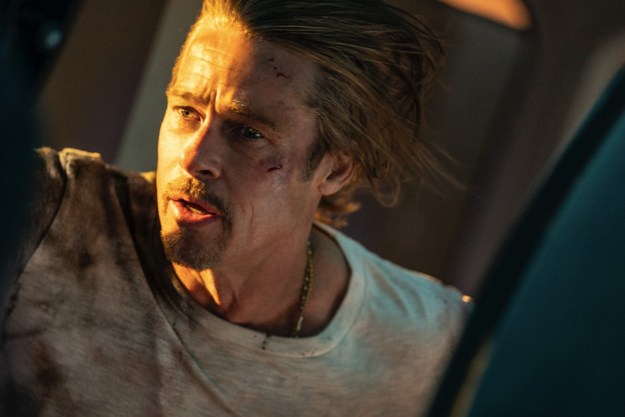For years, director Quentin Tarantino has said that he wants to retire from filmmaking after completing his 10th movie — although it can be argued that Tarantino has arguably already made 10 films if Kill Bill Vol. 1 & Kill Bill Vol. 2 count as two movies. Regardless, The Hollywood Reporter brings word that Tarantino has settled on what may be his final project. He will direct The Movie Critic from a script that he has already finished.
THR’s report states that The Movie Critic is said to be set during the ’70s in Los Angeles, with a female lead character. The report also speculates that Tarantino may be basing his leading heroine on Pauline Kael, a prominent film critic who was famous for her clashes with her editors and the filmmakers whose work she reviewed. Kael also briefly worked as a consultant for Paramount in the ’70s.

For now, there is no studio attached to The Movie Critic, nor have any actors signed on. But THR suggests that Tarantino may turn to Sony Pictures, the studio that handled his previous film, Once Upon a Time in Hollywood. Under the terms of that deal, Sony will return the rights to Once Upon a Time in Hollywood to Tarantino after a certain time period has expired.
Tarantino’s Hollywood journey began in 1992 when he helmed his theatrical directorial debut, Reservoir Dogs. Two years later, his second film, Pulp Fiction, was a cultural sensation with fans and critics alike. Tarantino also won praise for Jackie Brown and Kill Bill Vol. 1 & Vol. 2. Death Proof, his lone movie for Dimension Films, was the only Tarantino movie that was not well-received. Fortunately, Tarantino bounced back with a string of hits including Inglourious Basterds, Django Unchained, The Hateful Eight, and Once Upon a Time in Hollywood. That continued success is why Tarantino can write his own ticket for The Movie Critic, especially if it really does turn out to be the end of the road for his career.
Editors' Recommendations
- Like Inglourious Basterds? Then watch these three WWII movies right now
- 10 best 1980s movies ever, ranked
- His House is the scariest movie on Netflix right now. Here’s why you should watch it
- 7 most gruesome deaths in action movies
- 3 action movies on Prime Video you need to watch in September




